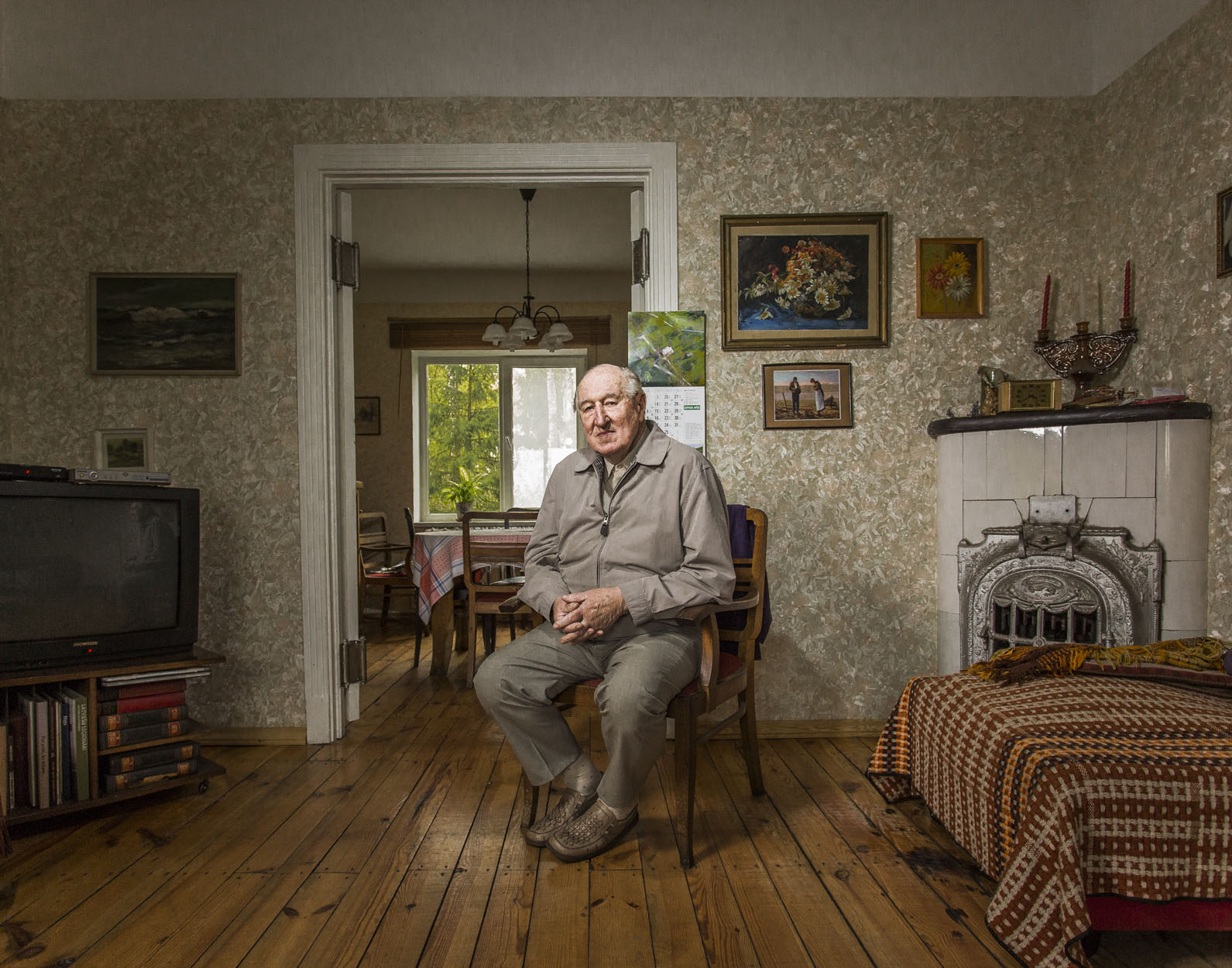My name is Arturs Vidners. I was born on August 14, 1925.
I went to school here. My father was in the army, an infantry commander. In June of 1940, the Russians came. They took my father to the garden and shot him in front of me.
In 1943, I turned 18 and volunteered for the army. I wanted to avenge my father's death.
I was sent to Germany for training, we were initially trained to fight Americans, but we refused because we wanted to fight the Russians. Soon, we were sent to Denmark for more training. Then to Czechoslovakia, then back to Latvia. I could have stayed in Germany, to fight there. But I wanted to return to my country and help gain freedom. I returned in 1944.
When I got back, I participated in major battles. I was awarded six medals.
In 1944, on December 23, we knew a fight was going to take place. We knew how big the Russian army was. They thought we were going to celebrate Christmas. But the fight was very bloody, because there were 23 Russians for every 1 Latvian.
There was no moment in that battle when Latvians wanted to run. We stayed and fought because we knew how much each person counted. There were soldiers on the field that couldn't move. Some went to the field to try and help them, and they shot at us, and the soldiers weren't because of that. During the Christmas fights, we needed to get ahead of the Russians. There was a moment when a Russian man was below me with a gun in his hand. I thought I was going to get shot. There were shots from elsewhere and the man fell dead in front of me. I never saw the guy who saved me. Not far from where we are, there's a special cemetery for Legion soldiers. In 1944, the Germans were helping because the Russians had tanks and they could shoot us from farther away than we could hit back. One time, another soldier and I were in the woods, surrounded by Russians. We understood that if we approached them head-on, we would be killed easily. So we ran out in a zigzag in different directions and together killed over two hundred men with our guns, over 4km. We got medals for that fight. But we didn't feel courageous, because it had been necessary, because had we not done that, we'd have been killed. One of the last episodes I remember from the war took place in 1944, on March 22. The Latvian Legion had to retreat, and I remember that I couldn't sleep. I was at a house and the Russians found us and surrounded the place with tanks. There were eighteen men inside. We proceeded to destroy five of the seven tanks and the other two fled. We won that fight. After that, on March 23, I was badly injured on an ammunition run when I was hit with shrapnel, and that was the end of the war for me. I was in a hospital when I heard the war was over. We were happy the war had ended, but we were upset also because the Russians had won. After the war, I was stuck at home, without documents, but fortunately I had a classmate who was a policeman and he helped me get documentation. Afterwards, I attended music school. It was hard after the war, because no one had money. Food was scarce. I tried to earn money by playing accordion. I didn't finish the education. The director of the school was Russian and he didn't allow me to take the exams. After that, I went on to work odd jobs. Like fishing.
